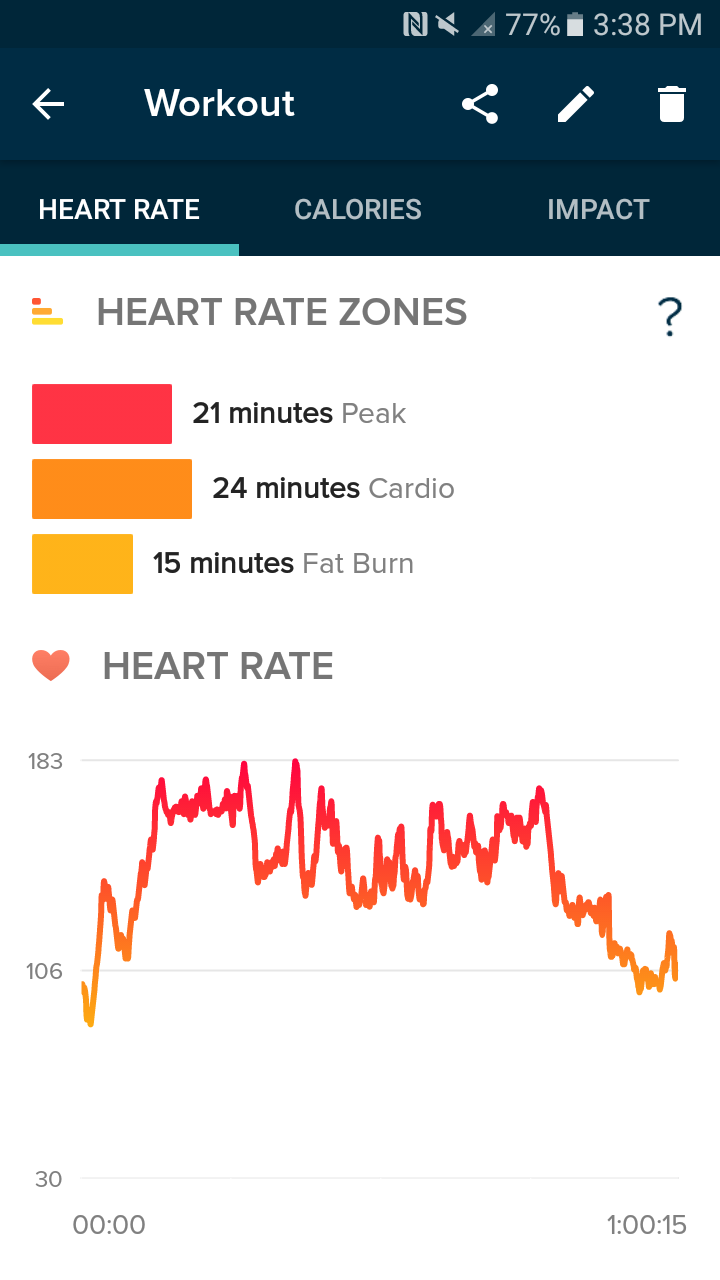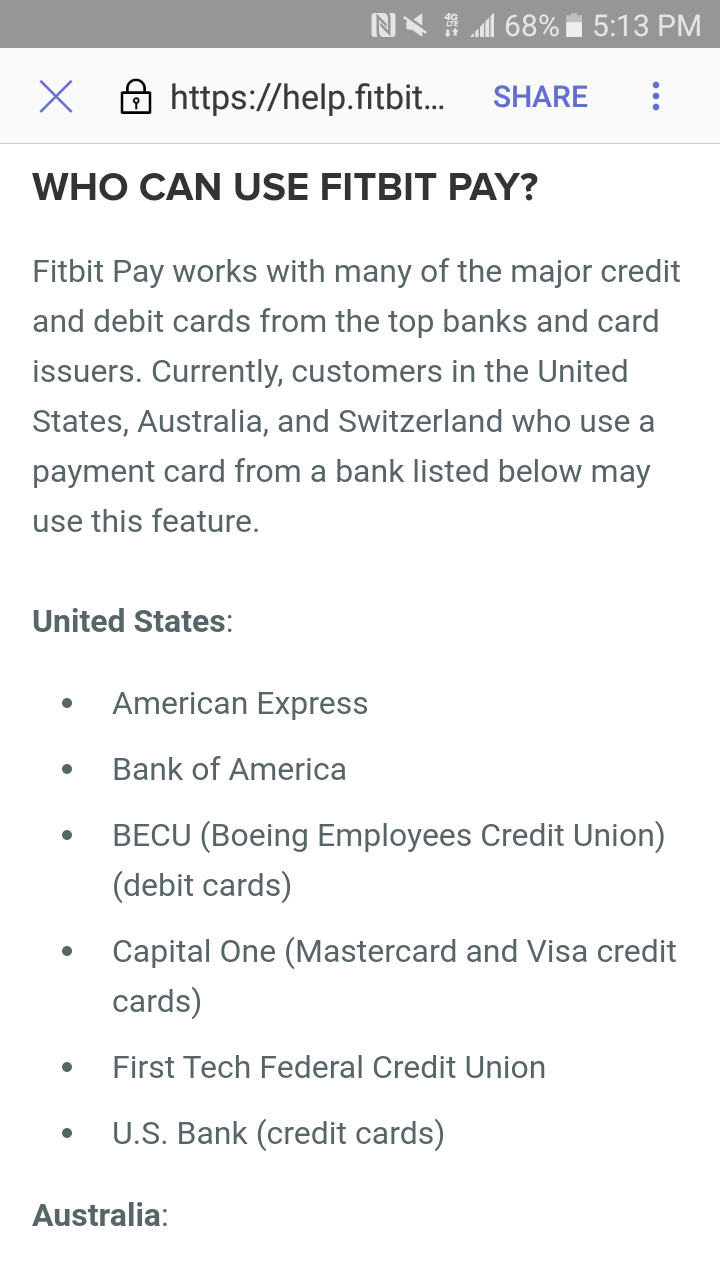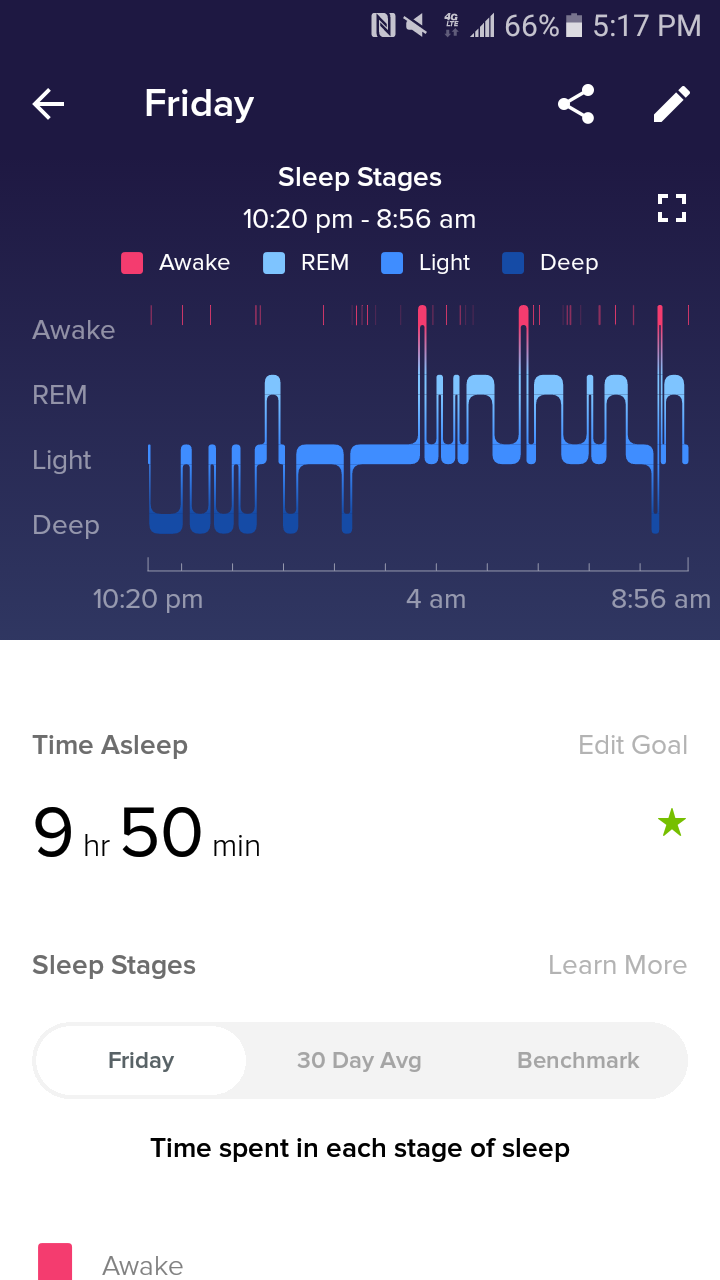--- the subscriber area has no ads and those above are not selected or endorsed by this site ---
Ionic review -3
23:40 15-Oct-17
My testers have had two weeks with the Fitbit Ionic. The
executive summary is that the finished product is good at what it
does, but it won't be for everyone. That said, I do see evidence
to back media reports that Ionic inventory is selling quickly. I
think the Fitbit will get decent sell-through on the Flyer earbuds
too, as the microphone in those is
necessary for hands-free calls and voice commands.
As I mentioned last week, though, the push to enable true
third-party software is just getting underway, though we do see
some progress being made in the documentation. Broad developer
support is important for the long run, and the current state of
the developer tool set is a source of risk. This is something
that the app developer that I've worked with may give further
attention down the road, as what's there now is just beginning to
approach usability.
- Heart Rate Monitoring: is a definite improvement over
legacy devices.
 Although there was one erratic reading early on during
non-workout activity, this was probably from a loose fit, and no
other instances were noted. Heart rates during workouts (using
workout mode) were judged to be on-target by the fitness
instructor tester. This is something older devices couldn't
manage with any consistency, but the improvements should be
present in competitor devices as well, thanks
to InvenSense. The instructor did find the biometric
feedback useful, but we both think that devices of this sort are
still in their infancy. For instance, many have suggested
customizable heart rate alerts as a desirable training tool, but
there are none to be found, at present. This, again, speaks to
the currently missing value of third-party app developers.
Although there was one erratic reading early on during
non-workout activity, this was probably from a loose fit, and no
other instances were noted. Heart rates during workouts (using
workout mode) were judged to be on-target by the fitness
instructor tester. This is something older devices couldn't
manage with any consistency, but the improvements should be
present in competitor devices as well, thanks
to InvenSense. The instructor did find the biometric
feedback useful, but we both think that devices of this sort are
still in their infancy. For instance, many have suggested
customizable heart rate alerts as a desirable training tool, but
there are none to be found, at present. This, again, speaks to
the currently missing value of third-party app developers. - Automatic Activity Detection: this was less impressive. A 1.5 hr hike registered as a 20 minute run, and a Vinyasa Yoga session didn't register as anything at all. Many other activities wound up being unrecognizable as well.
- Battery: this is perhaps the biggest win for Fitbit, and an important point for smart consumers who want their purchases to last, recognizing that battery life will degrade over time. Others, might appreciate being able to go through an entire weekend of heavy use without recharging the Ionic; that's something you wouldn't be able to do with the Apple Watch. Under more typical use, the Ionic goes from a half charge to full in just a half hour. All that said, it should be mentioned that this is an area where new startups are looking to do even better, with a smart watch that will never need charging. It also remains to be seen what the real battery life of the Gear Fit Pro will be. It's AMOLED screen may give it the edge, but we won't know for another week couple of weeks.
- Style: the primary tester is a model as well as fitness instructor, and she actually liked the product's looks for everyday use. Though it might not suite all tastes and occasions, this jives with reports that the watch cleans up better than photos might suggest. Even so, some will always prefer the look of a circular watch face.
- Payments:
 The
Starbucks app worked well, and there is a definite convenience
factor to not having to get out or carry anything to make
payments. However, this app works with Starbucks gift cards,
and there are those of us who would object to essentially making
an interest-free loan to Starbucks. The general-purpose FitPay
app still has very limited partnerships, and thus we were unable
to give it a real-world test, despite having several popular
credit cards available. One might well wonder why there need to
be partnerships at all for a credit card-based payment system.
That's an issue that goes beyond Fitbit, but as a relatively
small competitor, one that may hurt it nonetheless.
The
Starbucks app worked well, and there is a definite convenience
factor to not having to get out or carry anything to make
payments. However, this app works with Starbucks gift cards,
and there are those of us who would object to essentially making
an interest-free loan to Starbucks. The general-purpose FitPay
app still has very limited partnerships, and thus we were unable
to give it a real-world test, despite having several popular
credit cards available. One might well wonder why there need to
be partnerships at all for a credit card-based payment system.
That's an issue that goes beyond Fitbit, but as a relatively
small competitor, one that may hurt it nonetheless. - Interface: in contrast to reviews of pre-release models, our testers found the interface smooth and easy to use in all cases.
- No Metric: although this was not an issue for our reviewers, it has been noted that the Ionic's software doesn't currently support metric measurements. For a product that's counting international sales, that's a shortcoming, and one that, again, speaks to the lack of a mature application ecosystem.
- Sleep Tracking: sleep tracking worked out of the box.
 It remains to be seen how useful this data will
be, but to a lesser extent, that goes for all the data being
collected. That makes this a good time to reiterate that Fitbit
has something of a head start when it comes to a data-based
fitness community, but given the quality of the data and size of
competitors, that lead could evaporate quickly. Fitness
trackers have previously functioned mostly as motivational
tools. That's important, but results and meaningful data will
become more important in business partnerships where such data
impacts things like diagnosis and insurance
pricing.
It remains to be seen how useful this data will
be, but to a lesser extent, that goes for all the data being
collected. That makes this a good time to reiterate that Fitbit
has something of a head start when it comes to a data-based
fitness community, but given the quality of the data and size of
competitors, that lead could evaporate quickly. Fitness
trackers have previously functioned mostly as motivational
tools. That's important, but results and meaningful data will
become more important in business partnerships where such data
impacts things like diagnosis and insurance
pricing.
For next few months, though, it's sales data and how that flows through to the bottom line that should matter to investors. The Ionic has a 45-day return policy, and the primary reviewer is still deciding whether or not to keep it. Investors may be wondering the same thing about their FIT stock. Again, my guess is that there is enough here for Fitbit to at least maintain its current user base, and that management will present the reception in positive terms during the next report due around the turn of the month. I think that in turn can at least maintain, and quite possibly improve, the stock price until we get through the holidays and see how the software ecosystem develops. There the prospects look more uncertain, though not definitely bad. Time is not on Fitbit's side, though. Shareholders who wish to be safe and who don't mind short-term gains have something to think about, but others who bought in when I first mentioned the stock at the end of last February still have a reasonable shot at larger gains making it to long-term status.
 CrowdWisers™
CrowdWisers™